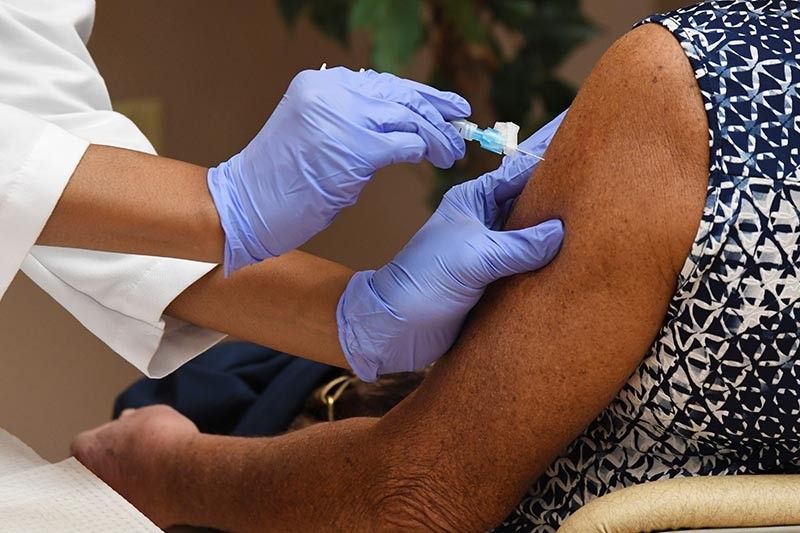Your questions about allergic reactions to COVID-19 vaccines answered

MANILA, Philippines — As the government hopes to begin its inoculation program this month, questions about COVID-19 jabs' side effects, particularly allergic reactions, have emerged.
So far, the country's Food and Drug Administration has given Emergency Use Authorization to only two COVID-19 vaccine makers: Pfizer/BioNTech and AstraZeneca. Both vaccines are expected to be rolled out in the first half of the year.
Earlier this week, the Philippine Society of Allergy, Asthma and Immunology released a position paper discussing COVID-19 vaccines and their adverse reactions, especially allergic reactions.
But should these reactions be a cause for concern?
"Based on current data, the benefits of these vaccines to the general public far outweigh the potential risk of adverse reaction to COVID-19 vaccines, as well as to the risk of developing severe COVID-19 and death," PSAAI said.
What’s a reactogenic reaction?
PSAAI said that adverse reactions to vaccines may happen and can range from reactogenic reactions to allergic reactions.
- Reactogenic reaction is an inflammatory response that occurs after vaccination.
- Reactogenic reactions include pain, tenderness and swelling, which can be managed with supportive care. Systemic post-vaccination reactions, meanwhile, include headache, fatigue, malaise, muscle pain, chills,
What about allergies?
- Also called hypersensitivity reaction, an allergy is an “exaggerated immune response to a usually harmless substance,” local allergists said.
- Mild allergic reactions can be treated with antihistamine.
What is anaphylaxis and how is it managed?
- Anaphylaxis, a severe allergic reaction, is rare. “Anaphylaxis […] is rare with an estimated incidence of 11.1 per one million doses in mRNA COVID-19 vaccines. The incidence of anaphylaxis to other COVID-19 vaccines is currently unknown,” PSAAI said.
Both the COVID-19 jabs of firms Pfizer/BioNTech and Moderna use messenger RNA to trigger immune system to produce protective antibodies.
- In case a patient experiences anaphylaxis, the drug epinephrine must be administered immediately. “It is therefore essential that all vaccinees should be observed for at least 30 minutes post-vaccination at vaccination centers,” PSAAI said, adding health workers must be trained to properly recognize and manage anaphylaxis.
The Department of Health earlier said that groups of health workers will be in charge of monitoring and responding to adverse events following immunization in vaccination sites. They will monitor patients for about 30 minutes to one hour.
Who should not receive COVID-19 vaccines?
PSAAI stressed the only current contraindication—a symptom or condition that makes a particular treatment or procedure potentially risky—is "an allergy to a previous dose of COVID-19 vaccine and any of its components."
- Second dose should not be administered to people who experienced an immediate allergic reaction, whether mild or severe, to COVID-19 vaccine after the first dose.
- People who have a history of allergic reaction or anaphylaxis to substances such as polyethylene glycol (PEG) or polysorbate should not be given certain COVID-19 shots
Who needs further evaluation?
- Patients who have experienced an immediate allergic reaction, regardless of severity, to any other vaccine must be evaluated by an allergist to assess possible allergic reactions to PEG or polysorbate.
PSAAI said all vaccinated patients should be monitored on site for at least 30 minutes after getting vaccinated.
Which special groups can take COVID-19 vaccines?
- Patients with allergic reactions to food, inhalant or environmental allergens, insects, latex, oral medications not related to vaccines and their components
- Patients with immunodeficiency and autoimmune disease such as Guillain-Barre Syndrome and Bell’s palsy
- Even patients with well-controlled asthma and on inhaled corticosteroids and those with allergic rhinitis on intranasal corticosteroids
— Gaea Katreena Cabico
- Latest
- Trending
































